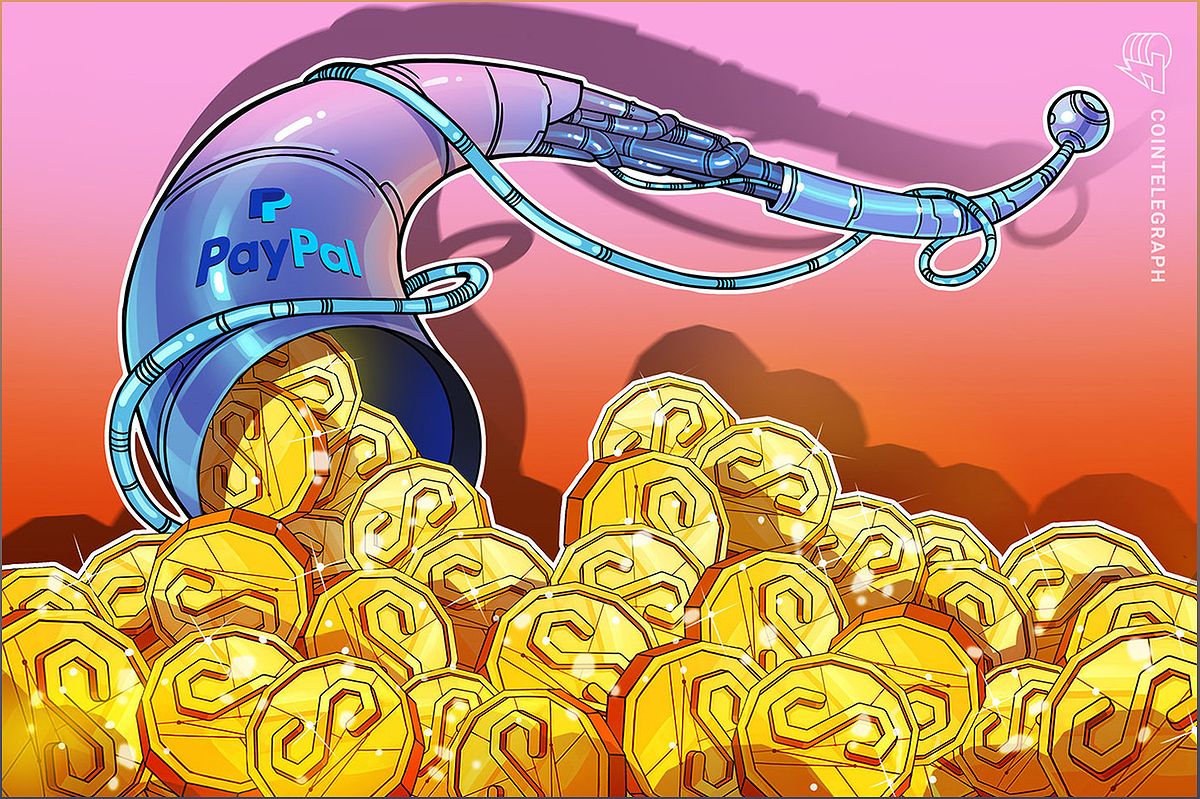Welcome to an informative exploration of PayPal's latest venture, PYUSD. In this article, we will delve into the introduction of PYUSD, its purpose, and its potential impact on the world of payments and cryptocurrency adoption. Join me as we uncover the features, benefits, and challenges surrounding this native stablecoin.
Introducing PYUSD: PayPal's Native Stablecoin
Learn about the launch of PYUSD and its role in bridging the gap between fiat and digital currencies.
PayPal has made a significant move in the world of cryptocurrencies with the introduction of its native stablecoin, PYUSD. This stablecoin aims to provide a seamless bridge between traditional fiat currencies and digital assets, offering users a safer and more reliable means of engaging with digital currencies.
With PYUSD, PayPal users can now enjoy various transactions, including payments, fund transfers between PayPal and compatible external wallets, and even crypto conversions. The goal is to simplify the process of value transfer and enhance the overall user experience in the virtual environment.
As an ERC-20 token on the Ethereum blockchain, PYUSD is compatible with popular exchanges, wallets, and Web3 applications. This compatibility extends its reach and usability, with plans to expand its availability to Venmo in the future.
Regulatory oversight for PYUSD is provided by the New York State Department of Financial Services, ensuring transparency and compliance. With Paxos publishing monthly reserve reports and third-party attestations of the reserve assets' value, users can have confidence in the stability and security of PYUSD.
The Potential Impact of PYUSD on Payments and Crypto Adoption
Explore the potential benefits and challenges of PayPal's stablecoin in driving wider cryptocurrency adoption and revolutionizing payment systems.
The introduction of PYUSD by PayPal has sparked discussions about its potential impact on payments and the broader adoption of cryptocurrencies. This stablecoin offers a safer alternative to the volatile nature of most cryptocurrencies, making it more appealing to consumers, merchants, and developers.
By providing a stable value and mitigating payment frictions, PYUSD aims to expedite value transfers and simplify digital asset engagement. This could potentially lead to increased acceptance of cryptocurrencies in regular finance and pave the way for more mainstream use cases.
However, there are challenges to consider. The entry of PayPal into the stablecoin space may attract stronger regulatory focus and tighter rule requirements. Regulators have already expressed concerns about the lack of a federal framework for stablecoin regulation, which could impact the future of PYUSD and similar initiatives.
Additionally, the potential of decentralized finance (DeFi) to serve the unbanked population is a topic of discussion. While PYUSD currently has centralized roots and has not ventured into DeFi, there is speculation about its future potential to empower the unbanked by providing access to loans, savings, and investment opportunities.
Challenges and Limitations for PYUSD Adoption
Explore the hurdles and limitations that could slow down the broader adoption of PYUSD and its integration into the financial ecosystem.
While the launch of PYUSD is a significant step towards accepting cryptocurrencies in regular finance, there are challenges and limitations that need to be addressed for broader adoption.
One concern is the potential for increased regulatory scrutiny. As PayPal's stablecoin gains traction, regulators may focus more on stablecoin projects and impose stricter regulations. This could impact the growth and acceptance of PYUSD, as well as the wider stablecoin ecosystem.
Another challenge lies in the accessibility for the unbanked population. While DeFi has the potential to provide financial services to the 1.7 billion people worldwide who do not have bank accounts, regulatory issues remain a significant bottleneck. PYUSD, for now, remains centralized and has not explored DeFi, limiting its potential impact on financial inclusion.
Furthermore, the performance and adoption of PYUSD in the crypto market are uncertain. As it currently ranks 242 on CoinMarketCap, there are apprehensions about its ability to compete with other stablecoins and gain widespread acceptance.

